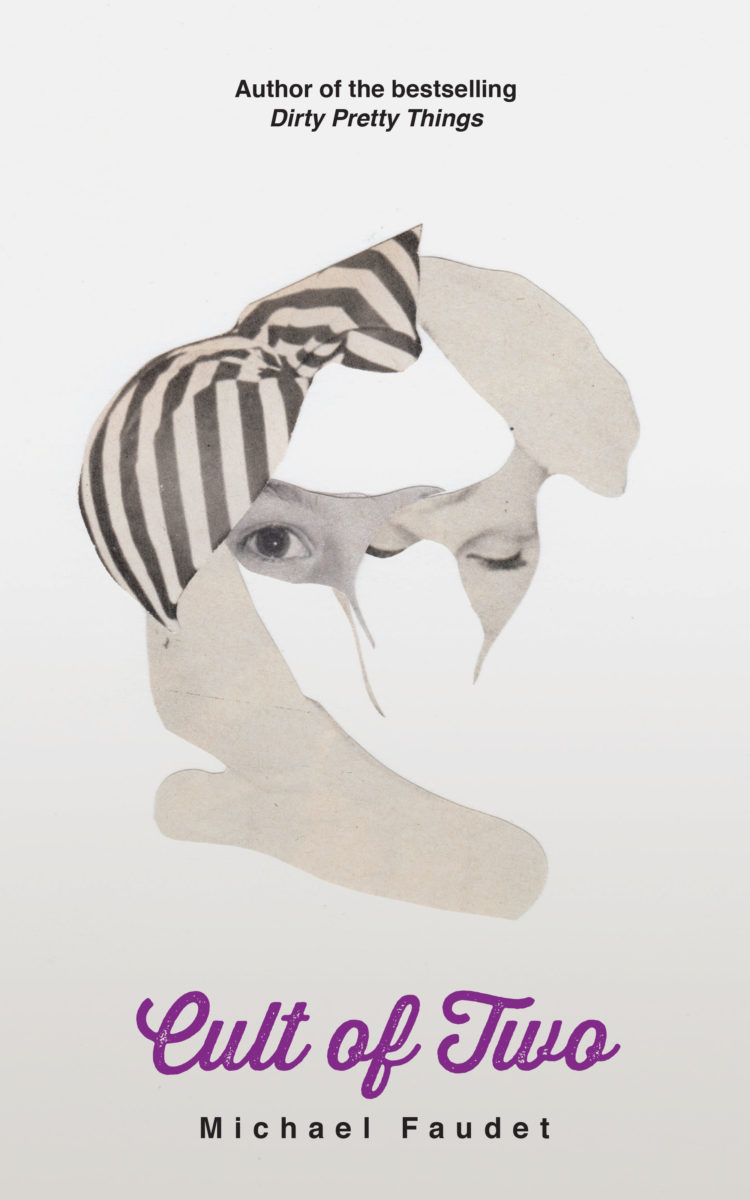Michael Faudet’s Cult of Two Aims to “Possess” Readers
Michael Faudet’s latest poetry collection, Cult of Two, published by Andrews McMeel on Nov. 19, makes a transparent confession in its front-page introduction: The book, Faudet insists, is “haunted.” If readers delve into its pages, he warns that they might just become possessed.
Of course, this haunting does not involve literal ghosts, but rather the ghosts of past relationships and former lovers, resurfacing bizarrely and unexpectedly in the details of everyday life. “How strange the things / we remember,” Faudet reflects in the poem “Chopping Onions,” a wistful line that seems to perhaps sum up Cult of Two best.
As the title “Chopping Onions” might suggest, Faudet sets the poems within Cult of Two in common spaces: in the kitchen, in anonymous hotels, and, yes, in the bedroom, a testament to his emphasis on the erotic. He relishes what one poem calls “the beauty found in the mundane,” using this as a guide for his imagery. Readers follow a couple as they eat “strawberry jam and toast crumbs,” as well as “cantaloupes and cotton candy.” Poems show the couple lounging while listening to Lana Del Rey, kissing in a first snow while bundled in parkas, and on the phone with each other while miles apart.
Through invoking these senses of what love tastes, sounds, and looks like, Cult of Two manages to portray a couple both wholly specific and entirely universal. Oftentimes, readers may feel like they are spying on a couple’s intimate, everyday rituals. In these quiet moments, Cult of Two sweeps readers into what feels like a slow-moving and close-up movie montage — or, as Faudet describes it, “a daydream made real — / in the shutter click of an eyelid.”
In these cinematic, montage scenes, it’s clear what arc the book will take: first, infatuation, then deepening love, heartbreak, and, of course, the repetition of this cycle through new relationships. By weaving his poems through this familiar pattern, Faudet begins to focus the book’s hazy, romantic, and nostalgic images so that readers see themselves reflected. He spotlights the typical highs and lows of relationships, remarking “Surely, it’s irresponsible to love someone this much,” and acknowledging that he wishes a kiss could last forever. For anyone who’s had the experience of falling in and out of love, such lines will ring stingingly true.
However, despite its darker moments — ones in which Faudet depicts himself as “wandering in the forest of past lovers” — the hope underlying Cult of Two persists. The book’s last line reads: “Do you believe it’s possible to find true love? / Yes, because I found you.” As much as this might epitomize Faudet’s real-life happy ending with his girlfriend Lang Leav, also an Andrews McMeel author who most recently penned Poemsia, it also represents the kind of relationship his readers crave.
Faudet encourages them to go after love, but cautions them against losing themselves — he says the title Cult of Two embodies the act of constantly chasing new relationships, to the point of self-destruction. Overall, the collection illustrates the need to be aware of love’s tumultuous, bittersweet nature, while also proclaiming that love continues to be worth it.




